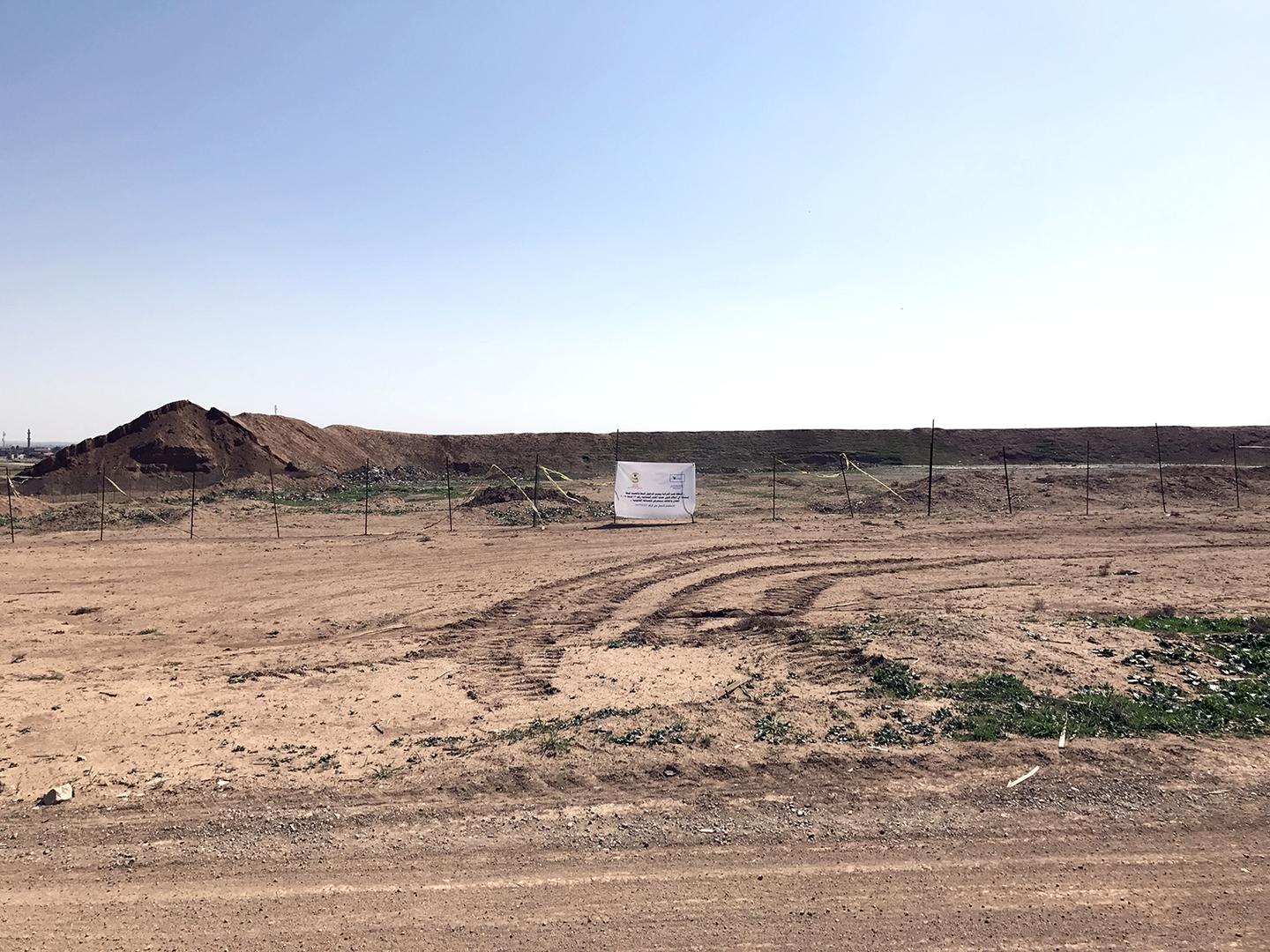Via Human Rights Watch | – –
Security Forces, Prisoners, Women, Among Those Executed
(Erbil) – The Islamic State (also known as ISIS) executed and dumped the bodies of possibly hundreds of detainees at a site near Mosul, Human Rights Watch said today.
Multiple witnesses told Human Rights Watch that the bodies of those killed, including bodies of members of Iraqi security forces, were thrown into a naturally occurring sinkhole at a site known as Khafsa, about eight kilometers south of western Mosul. Local residents said that before pulling out of the area in mid-February, ISIS laid improvised landmines at the site, which are sometimes referred to as improvised explosive devices or booby traps.
Iraq: ISIS Dumped Hundreds in Mass Grave
“This mass grave is a grotesque symbol of ISIS’s cruel and depraved conduct – a crime of a monumental scale,” said Lama Fakih, deputy Middle East director at Human Rights Watch. “Laying landmines in the mass grave is clearly an attempt by ISIS to maximize harm to Iraqis.”
Iraqi authorities should make it a priority to mark and fence the site for the protection of the mass grave and those in the area, until deminers can clear the site, Human Rights Watch said. Residents said that water runs through the bottom of the sinkhole, which may make it difficult to exhume the human remains there. If exhumation is possible, the process should be carried out under international standards. Authorities should turn the site into a memorial and support families of victims seeking justice for the executions.
The site is one of dozens of ISIS mass graves found between Iraq and Syria, but could be the largest discovered thus far, Human Rights Watch said. While it is not possible to determine the number of people executed at the site, the estimates of residents, based on executions they witnessed and what ISIS fighters in the area had told them, reaches into the thousands.
Iraqi forces seized control of the site in mid-February 2017. Human Rights Watch visited the site on March 7, but did not inspect the sinkhole closely due to the landmines. An improvised explosive device left at the sinkhole killed a journalist and at least three Iraqi security forces on February 25.
Residents said they had seen multiple mass executions at the 35-meter-wide sinkhole, sometimes on a weekly basis starting in June 2014 until May or June 2015. They said they heard ISIS fighters talking about other executions, including of former police, former Iraqi Security Force members, and members of the Awakening Force (Sahwa), the Sunni force that fought extremist fighters from 2007 to 2008.
Some of the victims may also have been detainees at Badoush Prison, 10 kilometers west of Mosul, which ISIS captured on June 10, 2014. On that day, ISIS fighters executed about 600 prisoners at a ravine in the nearby desert, nine survivors told Human Rights Watch.
On March 11, 2017, the Iraqi Security Forces announced that they had found another mass grave, about two kilometers from Badoush prison, that held between 500 and 600 men – though it is unclear how they determined these numbers. On March 13, Human Rights Watch spoke to an Iraqi military commander who had visited the site four days earlier and had witnessed Iraqi forces exhuming bodies there. On March 15, a general in the Iraqi military’s 9th division told Human Rights Watch that under the division’s supervision, medical experts from Baghdad had exhumed about 400 bodies from the site.
Fawaz Abdulameer of the International Committee for Missing Persons, an international organization working to establish effective procedures for protecting mass graves and conducting exhumations, told Human Rights Watch: “These excavations are unacceptable. They must be carried out by trained teams with sufficient experience, because they are dealing with human remains at a crime scene.”
This is the second report of ad hoc and unprofessional exhumations taking place without authorization.
Widespread or systematic murder carried out by a state or organized group as part of an attack against a civilian population – as part of a policy to commit murder – constitutes a crime against humanity. The deliberate killing of civilians and civilian or military prisoners during an armed conflict constitutes a war crime.
To facilitate accountability for these crimes, Iraq should ratify the Rome Statute, giving the International Criminal Court jurisdiction over war crimes and crimes against humanity there, and should incorporate the prosecution of war crimes, crimes against humanity, and genocide into its domestic law.
All parties to the conflict in Iraq should respect the 1997 Ottawa (Mine Ban) Treaty, which Iraq has ratified.
“The strong desire to exhume the remains of loved ones from ISIS mass graves is perfectly understandable, but hastily conducted exhumations seriously harm the chances of identifying the victims and preserving evidence,” Fakih said. “While exhuming the remains of those killed at Khafsa may be difficult, authorities should do what they can to make sure that those who lost their loved ones there have access to justice.”




 © 2025 All Rights Reserved
© 2025 All Rights Reserved